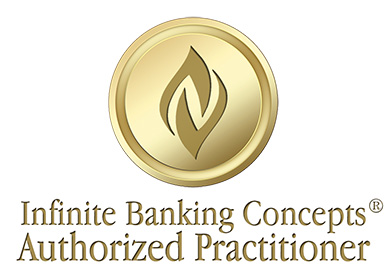“Successful people ask better questions, and as a result, they get better answers.”
-Tony Robbins
Prosperity Economics urges people to take back control of their thinking as well as their money. This leads us to the last big investor mistake in this series:
Mistake #10: Ask the wrong questions.(Or… ask the questions that Wall Street wants you to ask.)
Wall Street has taken over the retirement investment market not simply by making their funds (whether target-date, balanced, or managed) the default option, but by reframing the very questions investors are asking.
Our investing decisions – our actions, strategies, the products we buy – are determined by our thinking, and our thinking is heavily influenced by the media that is largely beholden to financial corporations. Whether you invest in target-date funds or other mutual funds within a retirement account or 401(k), these are the questions you should be asking:
“Is rate of return the most important thing? What other priorities should I have?”
American investors always want to know, “Where can I get a higher rate of return?” instead of “How can I keep more of my money working for me?” and “How can I get my dollars working harder by doing more than one job?”
By fixating on the potential “rate of return” of investment, many investors lose in the end. Focusing on rate of return without consideration for safety, control, tax ramifications, cash flow, ability to collateralize, and other factors lead to poor decisions, financial setbacks, and inefficient dollars. As John E. Girouard recently wrote in his excellent article for Forbes.com, all dollars are not equal.
“Are there alternatives to the roller coaster ride of the market?”
Wall Street wants you to ask, “How can I balance risk and potential growth in the stock market?” instead of asking, “Is this market risk even necessary!? Where can my money grow safely and reliably, protected from market ups and downs?”
Yes, it is possible to save and invest in such a way that does not lead to the stress and disruption of market crashes! Prosperity Economics utilizes strategies that don’t rely on market risk and Wall Street gambles.
“What are better options than stocks and bonds?”
Wall Street wants you to ask, “What’s the right ratio of stocks and bonds?” instead of asking,“Are there better options than stocks or bonds?” or “How do other asset classes compare that might deliver safer, more reliable results?”
Brokers are salespeople who sell certain products, such as stocks, mutual funds, and bond funds. They won’t necessarily know about, sell, or understand, or be able to evaluate investments outside of mutual funds, such as insurance-based products, real estate-related investments. However, we not only offer alternative investments, but we teach investors principles to help them evaluate any investment.
“How will taxes and fees erode my investment returns?”
Brokers, brokerage reps, some financial planners, money managers and anyone with “assets under management” make their living from controlling the money that investors put in their care. They will show you charts and graphs predicting how your money might grow, based on historic returns. But they aren’t as likely to show you the “whole truth” about what taxes and fees will do to your returns, even if the investments perform as hoped.
If your money is in a traditional 401(k) or IRA, in any type of mutual fund, you will be paying significant income taxes in the future, especially as the national debt makes it likely that tax rates will increase, not decrease. (However, if your retirement “expert” can convince you to take the tax break now, they’ll increase short-term commissions.)
Kim Butler’s new book, Busting the Retirement Lies, takes a sobering look at how taxes and fees combined can eat up a HUGE chunk of your investments, complete with calculations and graphs from Truth Concepts software, used by top financial advisors. Best yet, the book offers alternative solutions and ways of looking at retirement.
“How can I stop investing in my broker’s retirement fund?”
Wall Street wants you to ask, “Which fund has the lowest fees?” instead of wondering, “How can I keep control of all of my money?” or “When I choose to pay a fee, who can provide me with advice in my best interest?”
As we explored in Part Two of this series, those “little fees” can add up to a whopping six figures for the average American family! We have come to expect that it is “normal” to pay 1-2% fees in our mutual funds and especially our 401(k), not understand how the fees compound. But we have other options than allowing 30% or more of our savings to be siphoned off by fees and expenses – especially to fund managers and advisors who may not represent our best interests.
“Do you operate in my best interest, from a fiduciary platform?”
Wall Street hopes you’ll ask your advisor, “What mutual funds do you recommend?” not “Do you operate from a fiduciary platform,” and “Are you free to recommend the philosophies, strategies and products that are best for me, whether or not your company sells them?”
Shockingly, it was recently estimated that 85% of those educating, selling, and providing advice to investors about their retirement accounts do NOT operate from a fiduciary platform and have no legal requirement to recommend what is the absolutely best thing for the investor.
“Is this investment solid enough that I can borrow against it if I ever need to?”
Wall Street wants you to ask, “Which brokerage should I let manage my money?” not, “Are there companies so solid and investments so sure that I can collateralize my investments on demand?”
You can tell how safe and solid an investment is by asking a financial institution to loan money against it. The terms are revealing:
Real estate: Banks will typically lend 80% of a home’s value in a purchase or refinance with conventional mortgages. You can borrow up to 96.5% of a home’s value with an FHA loan and 100% with a VA (veteran’s administration) loan. Unless it is a reverse mortgage (a loan for seniors, typically only up to 50% of the home’s value, secured by equity alone), you must meet credit, income, and work history requirements. No taxes are typically paid on money from real estate refinances (but consult your accountant, there are exceptions.)
Stocks and mutual funds: Some stock brokers will loan up to 50% against mutual fund investments. Interest and fees are charged, and the money is typically used to buy others investments. Should a “margin call” occur (when interest, fees, and losses exceed the loan amount), the brokerage will sell shares to collect what is owed.
401(k) loans: If offered by the company, employees can borrow up to $50,000 or 50% of the account balance, whichever is less. (If your 401(k) has $500,000 in it, you can only borrow10%, or $50k.) If the employee leave their job for any reason, the money must be paid back within 60 days. And you’ll have to repay loan with after-tax dollars, then pay taxesagain when money is disbursed in retirement.
Cash value in a whole life policy: Mutual life insurance companies typically will lend 95% of cash value, for any reason. There are no other requirements to qualify. Policyholders pay annual interest up front, but then determine their own schedule for repayment. Borrowing against a cash value policy is not a taxable event.
Policyholders are also free to simply withdraw their cash value at any time, but we recommend that they don’t, if possible. There are advantages to leaving the cash value in the account and borrowing against it, such as, the cash value keeps growing and earning dividends.
“How can I keep control of my own money?”
Wall Street wants you to ask, “When can I have my money back to use for myself?” Instead of wondering, “Are there investments that can be liquidated with no penalties and taxes?”
The financial system sets us up to give control of our money to others, and to allow them to keep control for decades. We don’t believe that the best place for your money is in someone else’s hands – someone with conflicts of interest who profits when you surrender control of your own dollars.
Keeping control of your own money doesn’t need to be difficult or complicated. We can help you build your financial confidence so that you don’t give up control of your thinking – or your money – to Wall Street. We call it Prosperity Economics, and it’s a true alternative to “typical” financial planning.
Are You Asking the Right Questions about Your Investments?
If you’re are, you might be a good candidate to be one of our clients. If you’re got other questions about building sustainable wealth, or if you’re not sure WHAT questions you should be asking, we invite you to contact us to set up a complimentary consultation.
We also recommend that you watch Frontline’s excellent investigation on “The Retirement Gamble.” And if you find yourself feeling a bit depressed after that, we’d be glad to help you find better alternatives than giving 30% or more of your nest egg to Wall Street!
And if you haven’t yet read our “Life Insurance Commission Shock” article, you’ll want to find out the surprising truth about how much life insurance agents really get paid compared to the money managers collecting those “little” fees.
Regardless of what commissions are, every investor should be asking,
“How can I get healthy returns with maximum safety?”
We’re trained to think in terms of “How much risk must I take on to have a shot at the gains I need?” But you don’t have to settle for slow growth or high risk. There are alternative investments (outside the stock market) that will allow you to have it both ways!
©Prosperity Economics Movement




